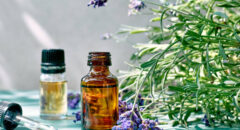
As summer draws near and we prepare to show more skin, you'll want to make sure your skin is glowing and healthy.
Being good to your skin is a vital part of your health, and dermatologists have 10 ways to help.
"The good news is that with a little extra time and effort, or sometimes just breaking bad habits, you can change your skin condition for the better," Dr. Megan Rogge, an assistant professor of dermatology the University of Texas Health Science Center at Houston says.
Here's how:
Chill out
Stress can cause many skin problems and make some worse. So try to relax.
"Acne, psoriasis, eczema, and certain types of hair loss all get worse when you're feeling stressed. Unfortunately, these are the four most common complaints of my patients," Rogge says.
Yoga or meditation can help you decompress, but even simple breathing exercises can make a difference, she adds.
RELATED: Eat Your Way To Healthy Hair & Glowing Skin
Give your diet a makeover
A healthy diet not only helps control weight, it also will make your skin look better.
Dr. Rajani Katta, a clinical professor of dermatology at UT, urges her patients "to eat more foods rich in antioxidants, especially fruits, vegetables, herbs and spices since they've been shown to help combat the effects of free radicals." These take a toll on the skin.
Use sunscreen
"Even in winter, the sun's rays still emit damaging ultraviolet radiation. I advise using a product with an SPF of 30, and placing it by your toothbrush so you don't forget each morning," Rogge says.
Drink lots of water
It's easy to become dehydrated in the summer. Beyond fatigue and other health effects, "dehydration also accentuates fine lines and wrinkles," Katta shares.
Remove makeup at day's end
Use a gentle cleanser morning and evening. "Any buildup of dirt or oil in your skin can leave it looking flat. It can also block your pores, resulting in acne breakouts and irritations," Rogge adds.
Get your zzzzzs
Scientific research supports the importance of beauty sleep. "Being sleep-deprived can increase those dreaded dark circles. Concealer can help hide the issue, but there's no substitute for shut-eye," Katta says.
Use moisturizer
For best results, use thick creams, not lotions. "Applying twice daily is normally sufficient, and you can help lock in moisture further by applying while your skin is still damp," Rogge adds.
RELATED: 7 Facts Blacks Should Know About Their Skin
Get plenty of fresh air
The effects of poor air quality can show on your face.
"Secondhand smoke and pollution can also accelerate aging of the skin," Katta shares.
Antioxidant-rich foods will help protect your skin from pollution and smoke-induced free radicals.
Keep up with your skin routine
Great skin takes effort, particularly as you age.
"Setting a routine morning and night is crucial because most skincare regimens give the best results when they are consistently followed," Rogge notes.
Be patient
"Although it's natural to want a product to have an immediate impact, it usually takes six weeks to be able to assess its effectiveness and start noticing any significant difference," Rogge shares.
It is important to note that your skin can also alert you to a health problem. A red, itchy rash might signal allergies or infections, and a red “butterfly” rash on your face could be a sign of lupus. Meanwhile, a yellow tint might indicate liver disease and dark or unusual moles might be a warning sign of skin cancer. For this reason, it is important to pay close attention to any drastic changes to your skin, and talk with your doctor if you have concerns.








